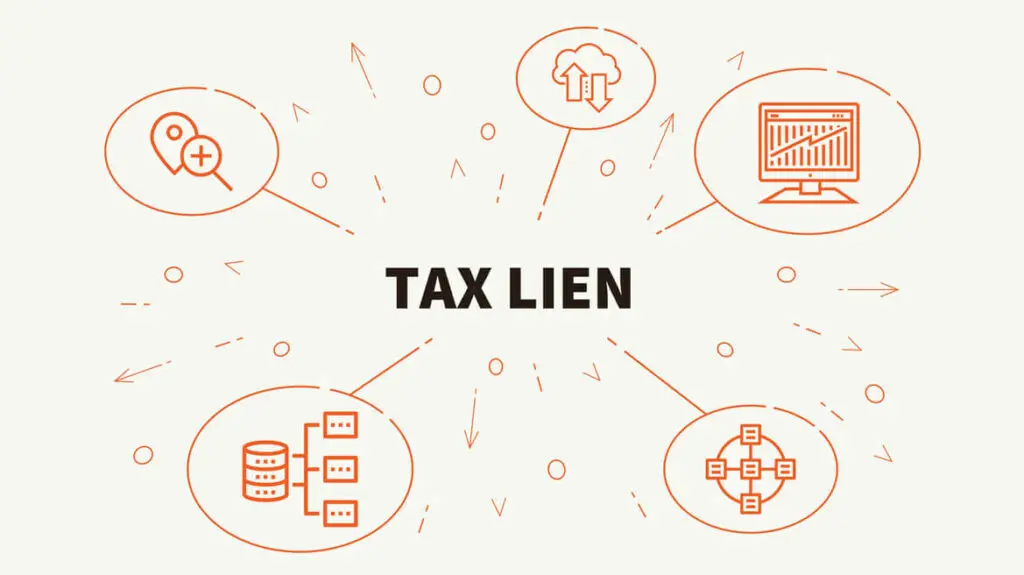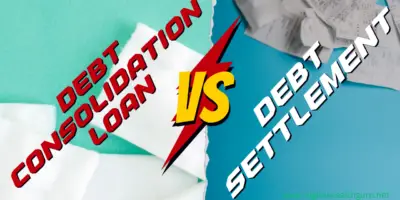As an experienced individual in the field of real estate investment, I am constantly on the lookout for creative methods to generate earnings and add variety to my investment portfolio.
Exploring the realm of tax lien investments presents a profitable prospect that often remains unnoticed.
This article aims to guide you through the comprehensive details of engaging in tax lien investments and uncover how to exploit this approach to generate profits and establish advantageous real estate ventures.
What Is Tax Lien
In simple terms, a tax lien stands as a lawful assertion made by the government on a property owing to the proprietor’s unpaid property taxes.
When a property holder falls short of paying either a portion or the entirety of their taxes, the government puts up the tax lien for auction to potential investors, who then cover the outstanding amount on the owner’s behalf.
This procedure enables the government to regain lost revenue while simultaneously granting investors a secure opportunity for investment with the potential for substantial returns.”
A tax lien is a legal claim that local or municipal governments place on a property when its owner fails to pay property taxes.
This claim acts as collateral against unpaid taxes and, in some cases, other related fees and penalties.
Tax liens are generally a precursor to more severe actions, such as property seizure by governmental authorities.
Tax Lien Certificates

A tax lien certificate is born when a property owner defaults on tax payments, prompting the local government to issue a tax lien.
This certificate outlines the outstanding taxes, along with any additional charges like interest and penalties.
These certificates are often auctioned off to investors who see an opportunity to make a profit.
Making Money With Tax Lien Investing
1. Income Revenue:
The main source of profit for investors engaging in tax lien investments is interest earnings.
When you acquire a tax lien, the property possessor is obligated to settle the owed amount along with an interest rate determined by the state or county.
This interest percentage varies, often falling between 5% and 36% annually, depending on the specific jurisdiction.
If the property owner resolves the tax lien within the redemption timeframe, which usually spans from six months to three years, you, as the investor, recover your initial investment along with the accumulated interest.
2. Acquiring Ownership of a Property
If the owner of a property is unable to repay the tax lien during the redemption timeframe, the investor might have the choice to initiate a foreclosure on the property.
This presents the opportunity to purchase the property for a significantly lower amount than its actual market worth.
This could lead to substantial profits upon selling or leasing the property.
How Tax Lien Investing Works
Tax lien investing involves purchasing tax lien certificates from municipalities that have auctioned them off.
When investors acquire these certificates, they effectively pay the delinquent tax debt on behalf of the property owner.
In return, they gain the right to collect the original debt, plus any accrued interest, from the property owner.
The investor aims to recoup the money invested along with the additional interest eventually.
How Do You Buy a Tax Lien Property?
While purchasing a tax lien certificate can provide a source of passive income, reaching a point where you feel comfortable investing in a specific one requires a notably active effort.
Those intrigued by tax liens should not only become well-versed in the sales process within the relevant jurisdiction but also in how to perform thorough research on the investment.
To acquire a tax lien, your initial step involves selecting the type of property you wish to hold a lien on, such as residential, commercial, or undeveloped properties, compared to those with improvements.
Subsequently, you can contact the local city or county treasurer to ascertain the details of the upcoming auction, including the timing, location, and whether it will be conducted online or offline.
In most instances, the county conducts an annual tax lien auction, many of which are facilitated through online platforms.
Registering for the auction a few weeks ahead is generally necessary, accompanied by a registration fee. Following this, you’ll receive a bid identification number via email.
The treasurer can also provide information about the sale’s regulations. These regulations encompass prerequisites for pre-registration, accepted payment methods, and any additional pertinent particulars.
As the auction commences, you participate by bidding on the certificates that capture your interest.
Here’s a step-by-step breakdown of the process:
- Auction Participation: Investors must participate in an auction to secure a tax lien certificate. Auction formats vary based on the municipality, so potential investors need to familiarize themselves with local regulations and procedures.
- Winning the Bid: Auction outcomes can be influenced by different factors. Some auctions award the certificate to the bidder offering the lowest interest rate, a strategy known as “bidding down the interest rate.” Alternatively, some investors secure certificates by offering the highest cash premium above the lien amount.
- Payment and Ownership: Once an investor wins a bid, they are required to pay the full tax bill, including interest and penalties. The investor then enters a redemption period, during which the property owner has a chance to repay the debt. If the owner fails to do so, the investor can initiate foreclosure proceedings and potentially acquire ownership of the property.
Tax Lien Investing Guidelines & Rules
Tax Lien investment operates without a central overseeing body, leading to differing regulations based on the geographical area.
Property investors in the real estate sector must comply with the specific regulations dictated by the jurisdiction in which the property is situated.
Beyond merely being aware of the specific statutes regarding the collection of tax liens, it’s common to also adhere to regulations at the county level concerning tax liens.
Real estate investors should dedicate effort to thoroughly investigate the regulations applicable to their chosen jurisdiction, as failure to do so could entail financial losses.
Acquiring the skills needed to discern and purchase valuable certificates, resulting in worthwhile profits, can take years of commitment.
Benefits and Risks of Tax Lien Investing
Benefits:
- Higher Potential Returns: Tax lien certificates often carry interest rates higher than traditional investments like savings accounts or CDs.
- Diversification: Tax lien investing offers exposure to real estate without the responsibilities of property ownership.
- First Position: In case of foreclosure, tax liens are often prioritized over other claims, potentially ensuring a higher chance of repayment.
Risks:
- Complexity: Tax lien investing involves navigating legal procedures and local regulations, which can be intricate and overwhelming for novice investors.
- Variable Yields: While tax lien interest rates can be high, the actual yields may be lower due to auction dynamics and competitive bidding.
- Foreclosure Risk: In the event the property owner doesn’t repay the debt, investors may need to initiate foreclosure proceedings, which can be time-consuming and costly.
- Due Diligence Burden: Investors are responsible for researching properties, liens, and local regulations, which demand considerable time and effort.
Prudent Considerations for Prospective Investors
- Thorough Research: Before diving in, conduct thorough research on local regulations, property values, and the specifics of tax lien auctions.
- Avoiding Environmental Hazards: Be cautious of properties with environmental damage, as this can lead to unforeseen liabilities.
- Updated Information: Keep in mind that property information and auction details can change rapidly, so conduct due diligence as close to the auction date as possible.
- Consider Passive Investment: Due to the complexities, consider passive investment through institutional members of the National Tax Lien Association (NTLA) for more guidance and ease.
Conclusion
Tax lien investing offers an unconventional path to real estate exposure, potentially yielding higher returns. However, it requires a significant amount of due diligence and understanding of local regulations.
While it’s possible to generate profits, the intricacies and potential risks involved mean that tax lien investing is not suitable for everyone.
As with any investment strategy, education and careful consideration are key to making informed decisions that align with your financial goals and risk tolerance.
Tax Lien FAQs:
Here are some questions and answers about tax liens:
Q: What is a tax lien?
Tax lien – a legal claim that the government places on your property when you owe unpaid taxes. This lien gives the government the right to seize and sell your property to clear your tax debt.
Q: What types of taxes can result in a tax lien?
Both federal and state taxes can result in a tax lien. Federal taxes include income tax, payroll tax, and estate tax. State taxes include income tax, sales tax, and property tax.
Q: How do I know if I have a tax lien?
The IRS will deliver to you a Notice of Federal Tax Lien if they file a lien against your property. You can also check your credit report to see if there is a tax lien listed.
Q: How does a tax lien affect me?
A tax lien can have a number of negative consequences. It can make it difficult to get a loan or mortgage, and it can damage your credit score. It can also prevent you from selling or transferring your property without paying off your tax debt.
Q: How can I remove a tax lien?
There are a few ways to remove a tax lien. You can pay off your tax debt in full, or you can enter into a payment agreement with the IRS. You can also request that the IRS withdraw the lien if you meet certain criteria.
Q: What is the difference between a tax lien and a levy?
A tax lien is a legal claim on your property, while a levy is the seizure of your property to clear your tax debt. The IRS can only levy on your property once they have first filed a tax lien.
Q: Can I sell my property if I have a tax lien?
You can sell your property if you have a tax lien, but the proceeds of the sale will be used to satisfy your tax debt first. If you sell your property without paying off your tax debt, the IRS can still levy on the proceeds of the sale.
Q: What if I can’t afford to pay off my tax debt?
If you can’t afford to pay off your tax debt, you can have a payment agreement with the IRS. You may also qualify for an offer in compromise, which is a settlement program that allows you to pay off your tax debt for less than the full amount.
Q: Where can I get more information about tax liens?
You can get more information about tax liens from the IRS site or by calling the IRS at 1-800-829-1040. You can also consult with a tax attorney or accountant for help resolving your tax problems.
Discover more from Digital Wealth Guru
Subscribe to get the latest posts sent to your email.








Comments